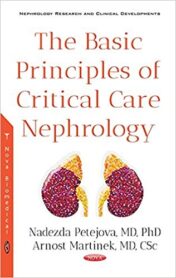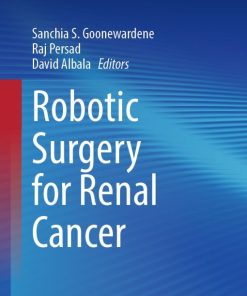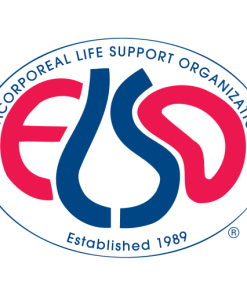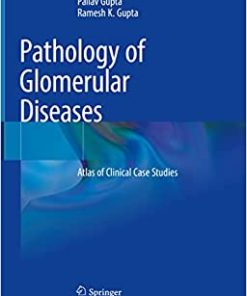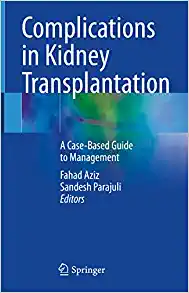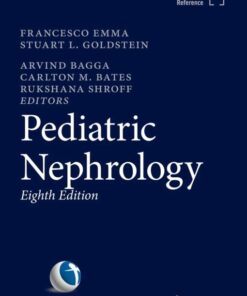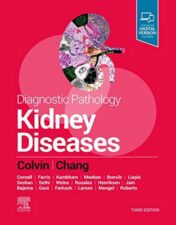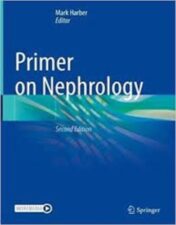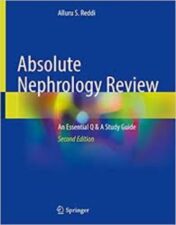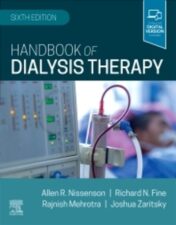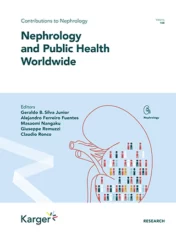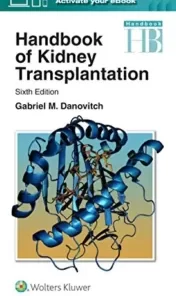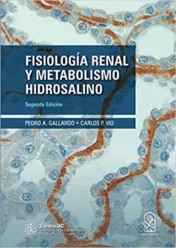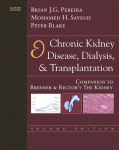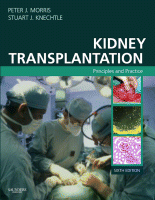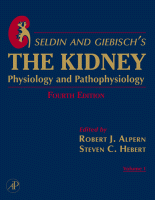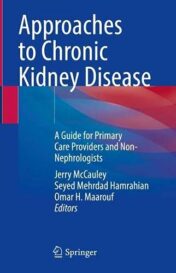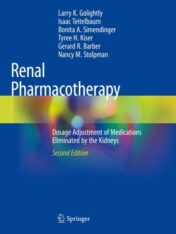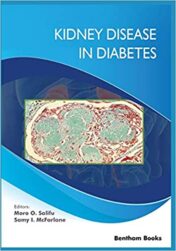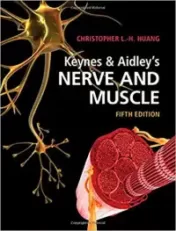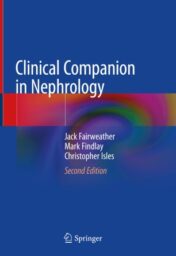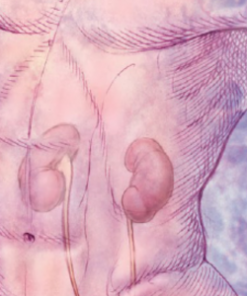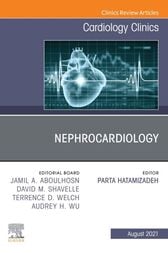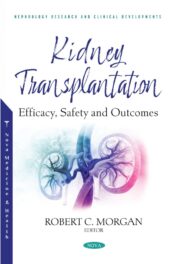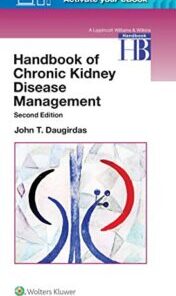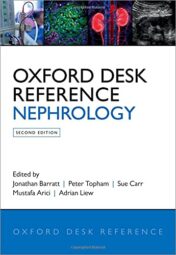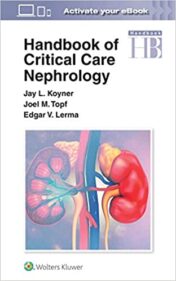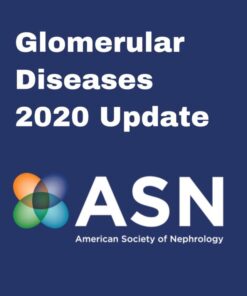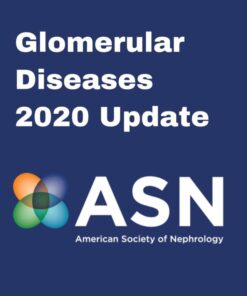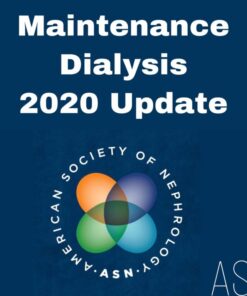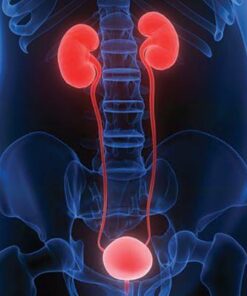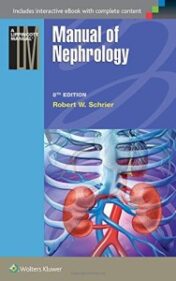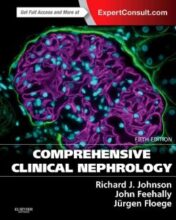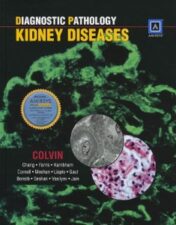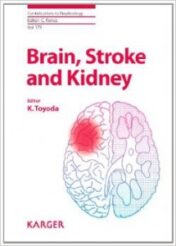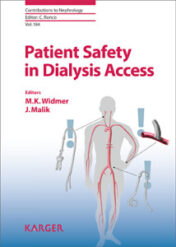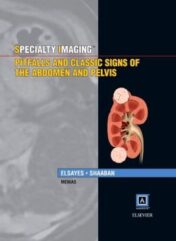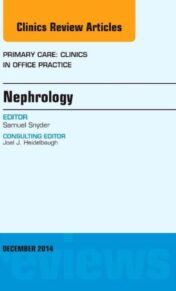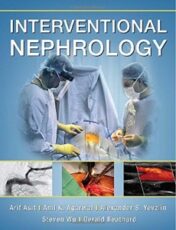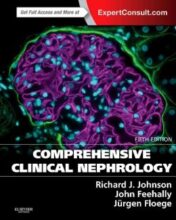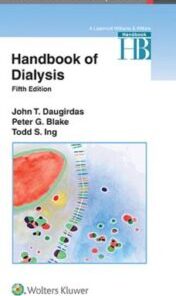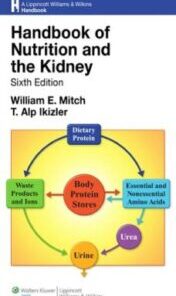The Basic Principles of Critical Care Nephrology (Original PDF)
$10
The Basic Principles of Critical Care Nephrology (Original PDF)
Acute kidney injury (AKI) is a common diagnosis in daily clinical practice, occuring in virtually all fields of medicine. Critically ill patients are especially prone to the development of AKI due to frequent haemodynamic instability, multiple risk factors and, diagnostic and/or treatment complications. Severe AKI substantially prolongs the intensive care unit (ICU) length of stay, with increased risk of death. AKI is also a predisposing factor for multiple organ dysfunction syndrome and is usually a part of it. For these and other reasons, critical care nephrology plays an irreplaceable role in treating critically ill patients in ICUs.
The current trend in medicine generally – not only in critical care nephrology – is to gather as much scientific knowledge as possible and in medicine, everything is interrelated. Further, knowledge of pathophysiology and understanding the causes of illness come in an era of increasing polypharmacy and the escalating side effects of drugs. The latter can cause conditions with the same clinical picture as immune system disorders, viruses and bacteria. Another issue is poisonings and drug intoxications, which are a daily issue in ICU settings. In short, the aetiological spectrum of disease has expanded.
This book presents the basic principles in critical care nephrology and covers the epidemiology, pathophysiology, the most frequent syndromes, poisonings and conservative or invasive treatment options. The aim is to present an easily understandable overview using relevant scientific research results, along with the authors’ own practical clinical experience from the University Hospital of Ostrava in the Czech Republic. The authors believe that this textbook will be useful to physicians who have to make rapid diagnoses and decision making in daily ICU practice. (Nova Biomedical)
Related Products
NEPHROLOGY BOOKS
NEPHROLOGY BOOKS
Robotic Surgery for Renal Cancer (Original PDF from Publisher)
NEPHROLOGY BOOKS
NEPHROLOGY BOOKS
NEPHROLOGY BOOKS
Handbook of Nephrology and Hypertension, 7th Edition (EPUB3)
NEPHROLOGY BOOKS
NEPHROLOGY BOOKS
Pediatric Nephrology, 8th Edition (Original PDF from Publisher)
Internal Medicine Videos
NEPHROLOGY BOOKS
Diagnostic Pathology: Kidney Diseases, 3rd Edition 2019 Original PDF
NEPHROLOGY BOOKS
NEPHROLOGY BOOKS
NEPHROLOGY BOOKS
NEPHROLOGY BOOKS
NEPHROLOGY BOOKS
Minimally Invasive Percutaneous Nephrolithotomy 2022 Original PDF
NEPHROLOGY BOOKS
NEPHROLOGY BOOKS
NEPHROLOGY BOOKS
American Society of Nephrology (ASN) Kidney Week 2021 CME VIDEOS
NEPHROLOGY BOOKS
NEPHROLOGY BOOKS
Handbook of Home Hemodialysis, 1st Edition High Quality PDF 2021
NEPHROLOGY BOOKS
NEPHROLOGY BOOKS
Kidney Transplantation Principles and Practice 2008 Original pdf
NEPHROLOGY BOOKS
Chronic Kidney Disease Diagnosis and Treatment 2020 Original pdf
NEPHROLOGY BOOKS
NEPHROLOGY BOOKS
Acute Kidney Injury and Regenerative Medicine 2020 Original pdf
NEPHROLOGY BOOKS
Diabetic Nephropathy Methods and Protocols 2020 Original pdf
NEPHROLOGY BOOKS
NEPHROLOGY BOOKS
NEPHROLOGY BOOKS
NEPHROLOGY BOOKS
Keynes & Aidley’s Nerve and Muscle, 5th Edition (Original PDF) 2020
NEPHROLOGY BOOKS
NEPHROLOGY BOOKS
NEPHROLOGY BOOKS
NEPHROLOGY BOOKS
NEPHROLOGY BOOKS
Harvard Comprehensive Review of Nephrology 2021 (CME Videos)
NEPHROLOGY BOOKS
Nephrocardiology, An Issue of Cardiology Clinics Original PDF
NEPHROLOGY BOOKS
Oxford Desk Reference Nephrology, 2nd Edition (Original PDF)
NEPHROLOGY BOOKS
NEPHROLOGY BOOKS
NEPHROLOGY BOOKS
Handbook of Critical Care Nephrology ePub+Converted PDF 2021
NEPHROLOGY BOOKS
NEPHROLOGY BOOKS
NEPHROLOGY BOOKS
NEPHROLOGY BOOKS
NEPHROLOGY BOOKS
NEPHROLOGY BOOKS
NEPHROLOGY BOOKS
NEPHROLOGY BOOKS
NEPHROLOGY BOOKS
NEPHROLOGY BOOKS
NEPHROLOGY BOOKS
Systemic Lupus Erythematosus, An Issue of Rheumatic Disease Clinics
NEPHROLOGY BOOKS
NEPHROLOGY BOOKS
New Insights into Glomerulonephritis : Pathogenesis and Treatment
NEPHROLOGY BOOKS
NEPHROLOGY BOOKS
NEPHROLOGY BOOKS
NEPHROLOGY BOOKS
NEPHROLOGY BOOKS
Hemolytic Uremic Syndrome: Symptoms, Treatment Options and Prognosis
NEPHROLOGY BOOKS
Pediatric Renal Transplantation: Protocols and Controversies
NEPHROLOGY BOOKS
Nephrology, An Issue of Primary Care: Clinics in Office Practice
NEPHROLOGY BOOKS
NEPHROLOGY BOOKS
Comprehensive Clinical Nephrology, 5th Edition (ORIGINAL PDF)
NEPHROLOGY BOOKS
NEPHROLOGY BOOKS
NEPHROLOGY BOOKS
Renal and Urologic Issues, An Issue of Clinics in Perinatology
NEPHROLOGY BOOKS

